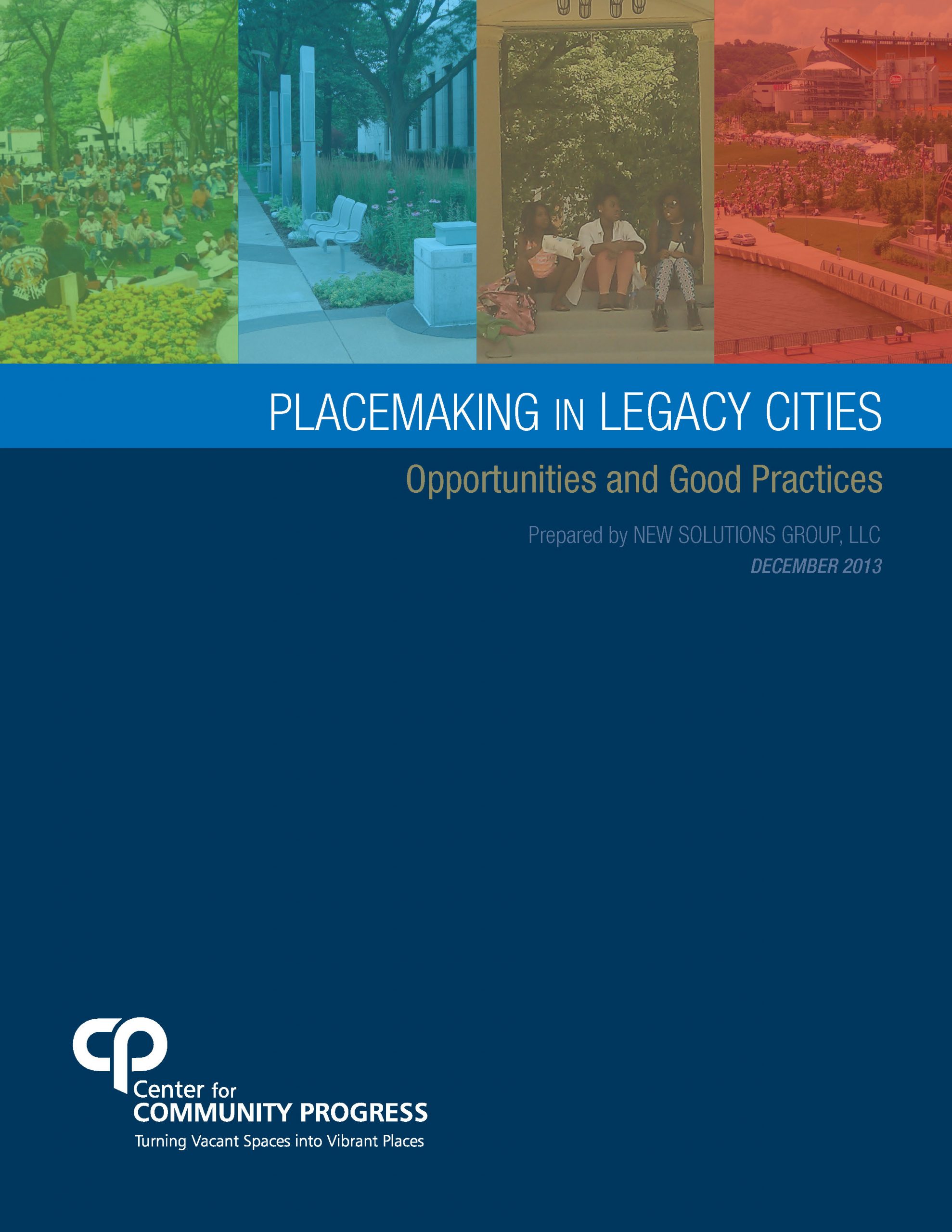Just released! Our new report shares stories of placemaking in Legacy Cities
January 16, 2014

Today marks the release of our latest publication: Placemaking in Legacy Cities: Opportunities and Good Practices!
The impetus for the report began with a question: how does placemaking apply to Legacy Cities — those former industrial hubs that are rich in historic, institutional, and other assets, but are grappling with sharp population declines? Are there good examples of Legacy Cities that have reactivated their public spaces using these principles?
This new report moves us toward the answers. It shares the stories of residents and leaders in Legacy Cities who (sometimes intentionally, sometimes intuitively) did use placemaking – a process of activating public spaces – to create revitalized community assets. The stories range from the literal grassroots, beginning with a local merchant weeding a bus stop planter in Buffalo, to more complex multi-institutional partnerships, as with the Midtown Loop in Detroit.
Prepared for the Center for Community Progress by New Solutions Group, LLC, Placemaking in Legacy Cities: Opportunities and Good Practices uses case studies to explore both challenges and successes in four different settings: downtowns, anchor districts, neighborhoods and corridors/trails.
It features the stories of the following projects, across four states:
- Over the Rhine in Cincinnati, Ohio
- Midtown, the Georgia Street Community Collective, and Clark Park in Detroit, Michigan
- Elmwood Avenue in Buffalo, New York
- Waterfront development and the trail system in Pittsburgh, Pennsylvania
 Legacy Cities, which are largely in the Northeast and Midwest, experienced industrial and population declines during the latter half of the twentieth century. Made possible through the generous support of the Charles Stewart Mott Foundation, the Ford Foundation, and the Oak Foundation, Placemaking in Legacy Cities: Opportunities and Good Practices examines how placemaking can be adapted to these settings, which often include high vacancy rates, a shrinking property tax base, and other challenges that differ from those of cities experiencing high growth rates.
Legacy Cities, which are largely in the Northeast and Midwest, experienced industrial and population declines during the latter half of the twentieth century. Made possible through the generous support of the Charles Stewart Mott Foundation, the Ford Foundation, and the Oak Foundation, Placemaking in Legacy Cities: Opportunities and Good Practices examines how placemaking can be adapted to these settings, which often include high vacancy rates, a shrinking property tax base, and other challenges that differ from those of cities experiencing high growth rates.
We look forward to sharing bonus content (!) with you over the next couple of weeks, including an interview with Francis Grunow and Sarah Szurpicki, who are two of the report’s authors, and an interview with Mark Covington, founder of the Georgia Street Community Collective, whose heartwarming story begins on page 26 of the report.
The full report is available to download on our website, free of charge. Share your thoughts at @CProgressNews or follow the conversation at #placemaking and #LegacyCities.
Get the latest tools, resources, and educational opportunities to help you end systemic vacancy, delivered to your inbox.


